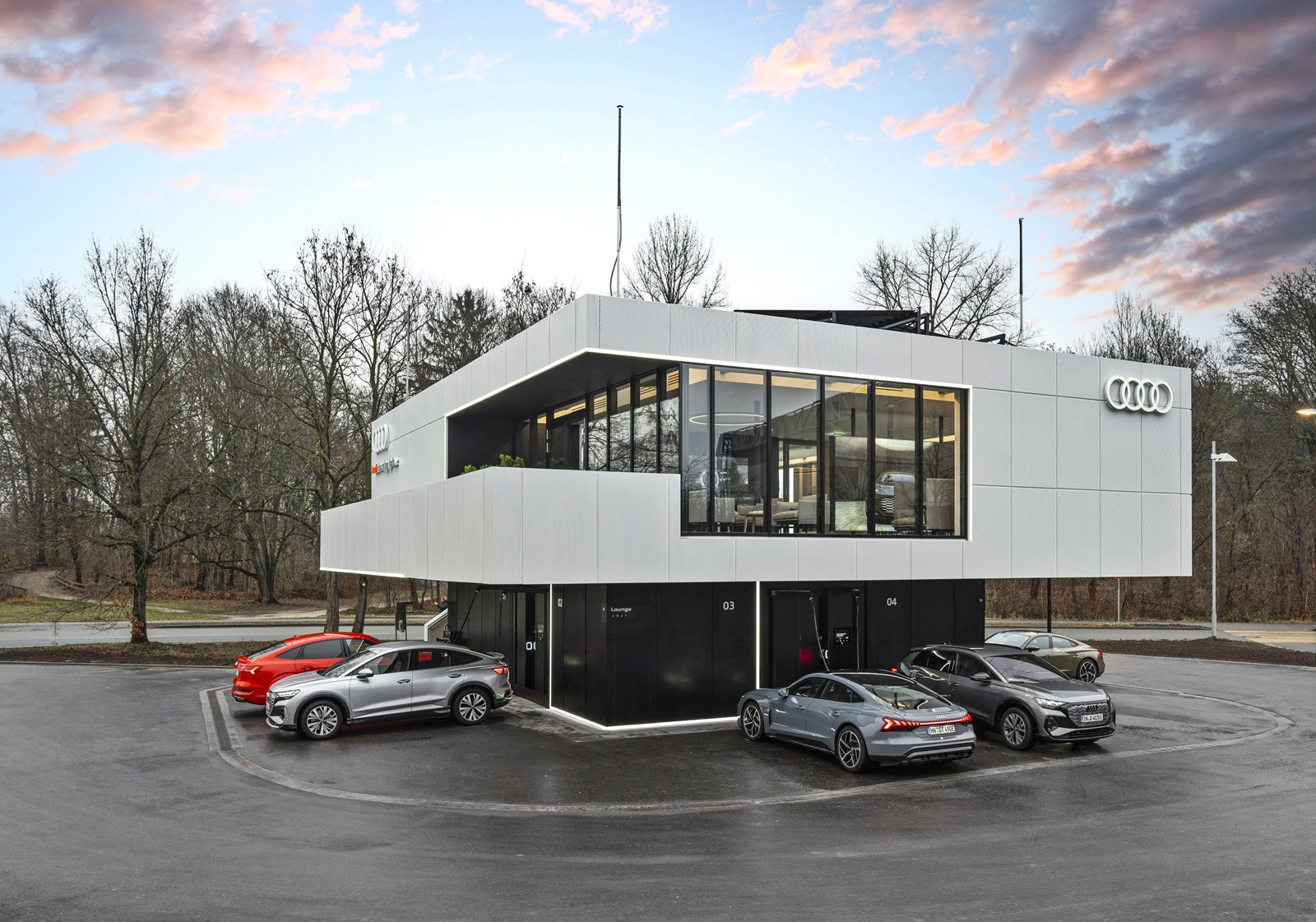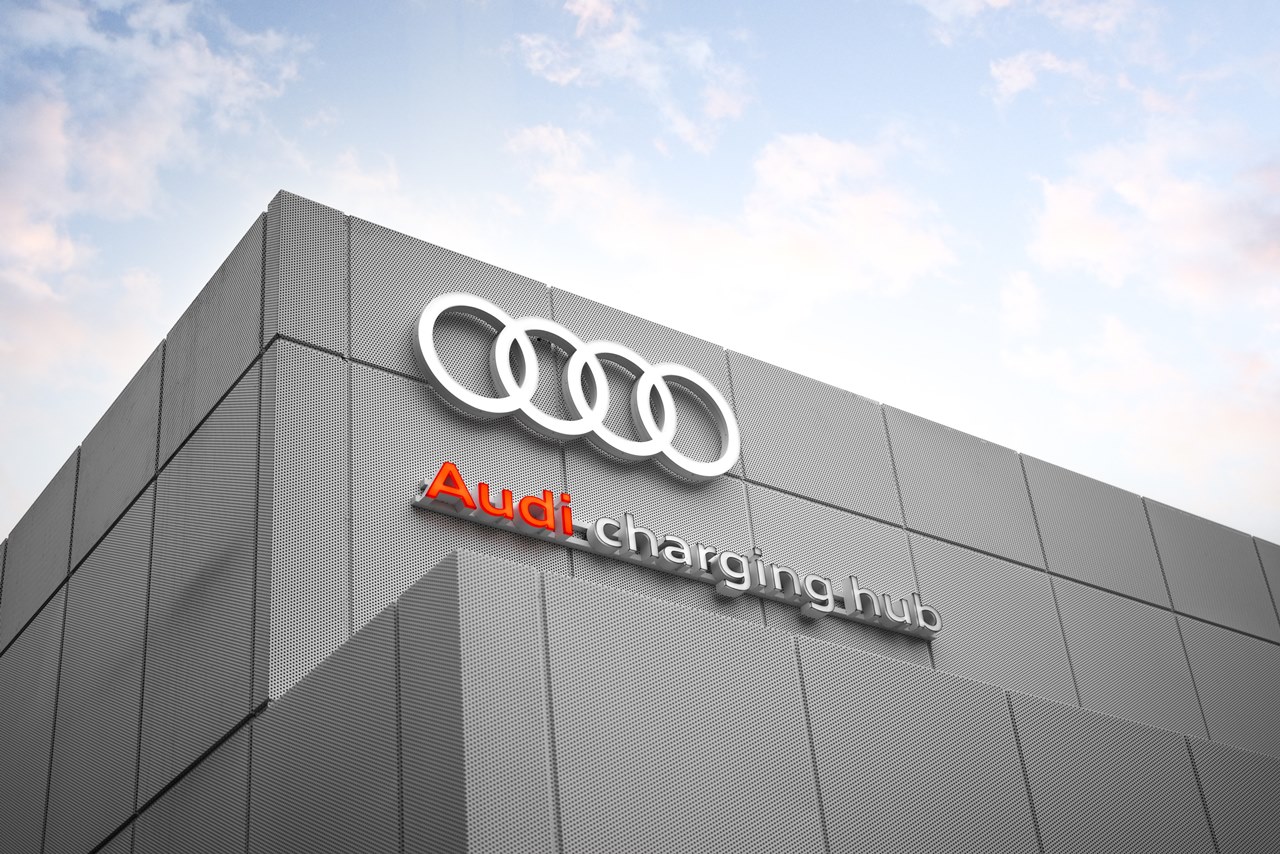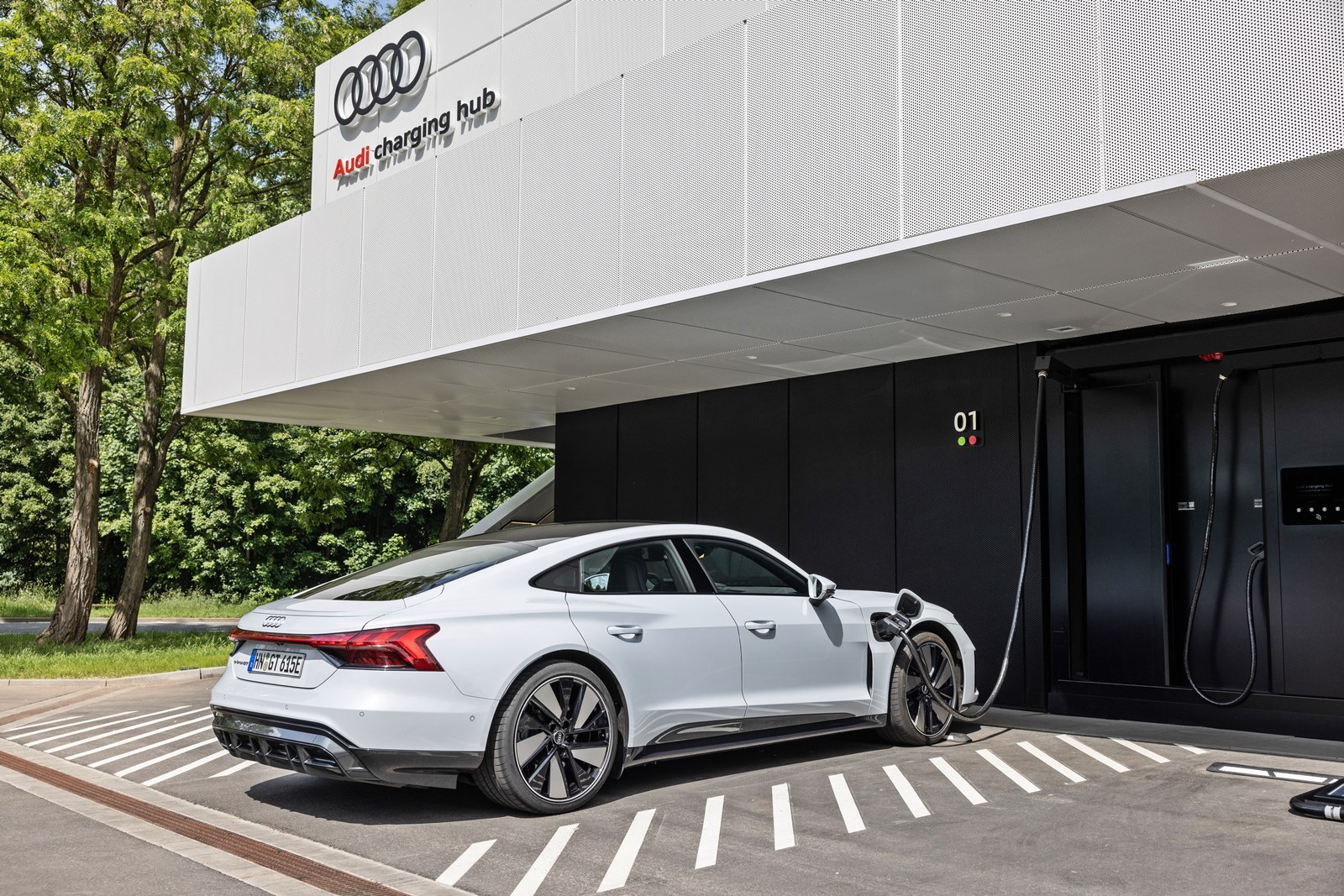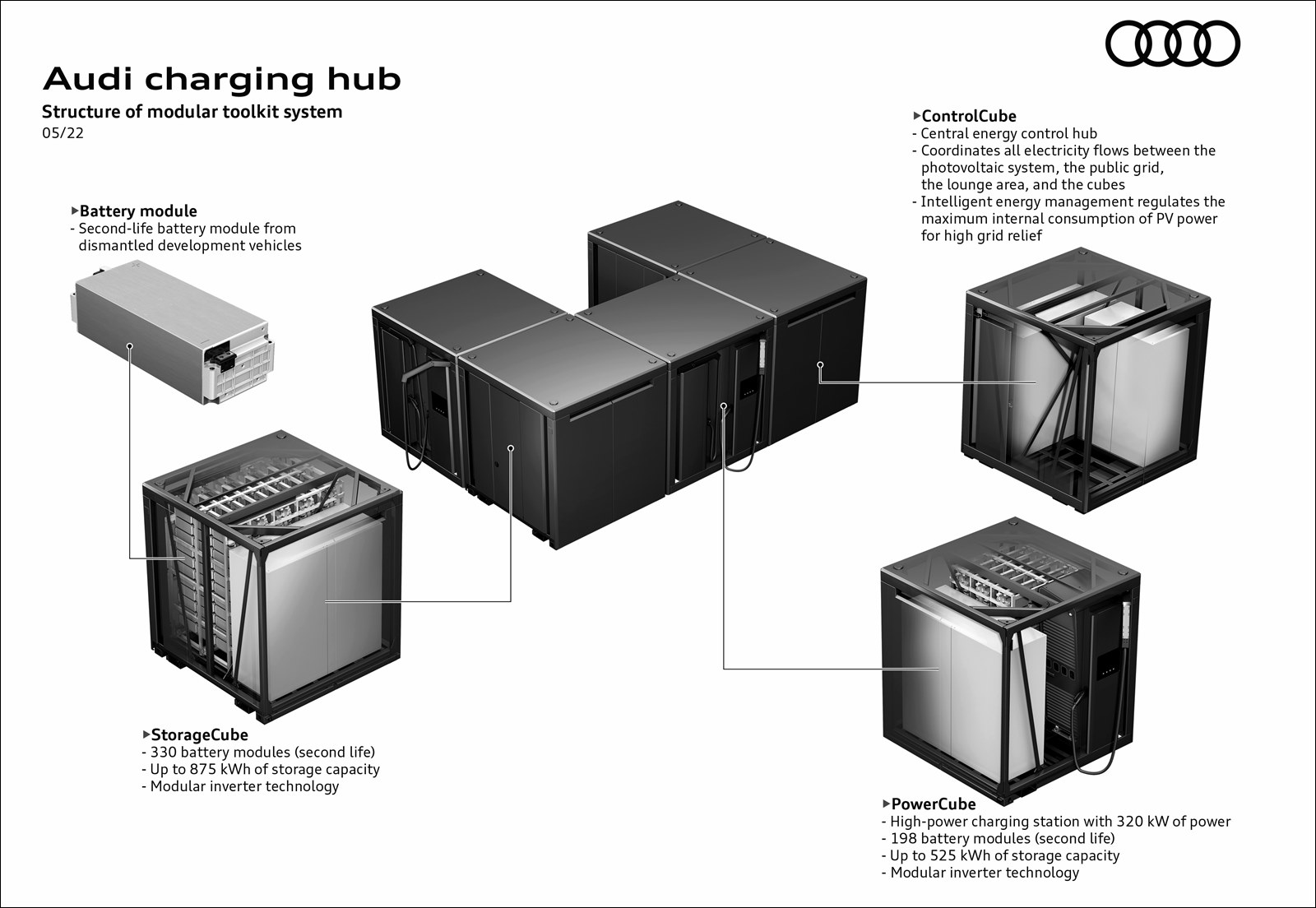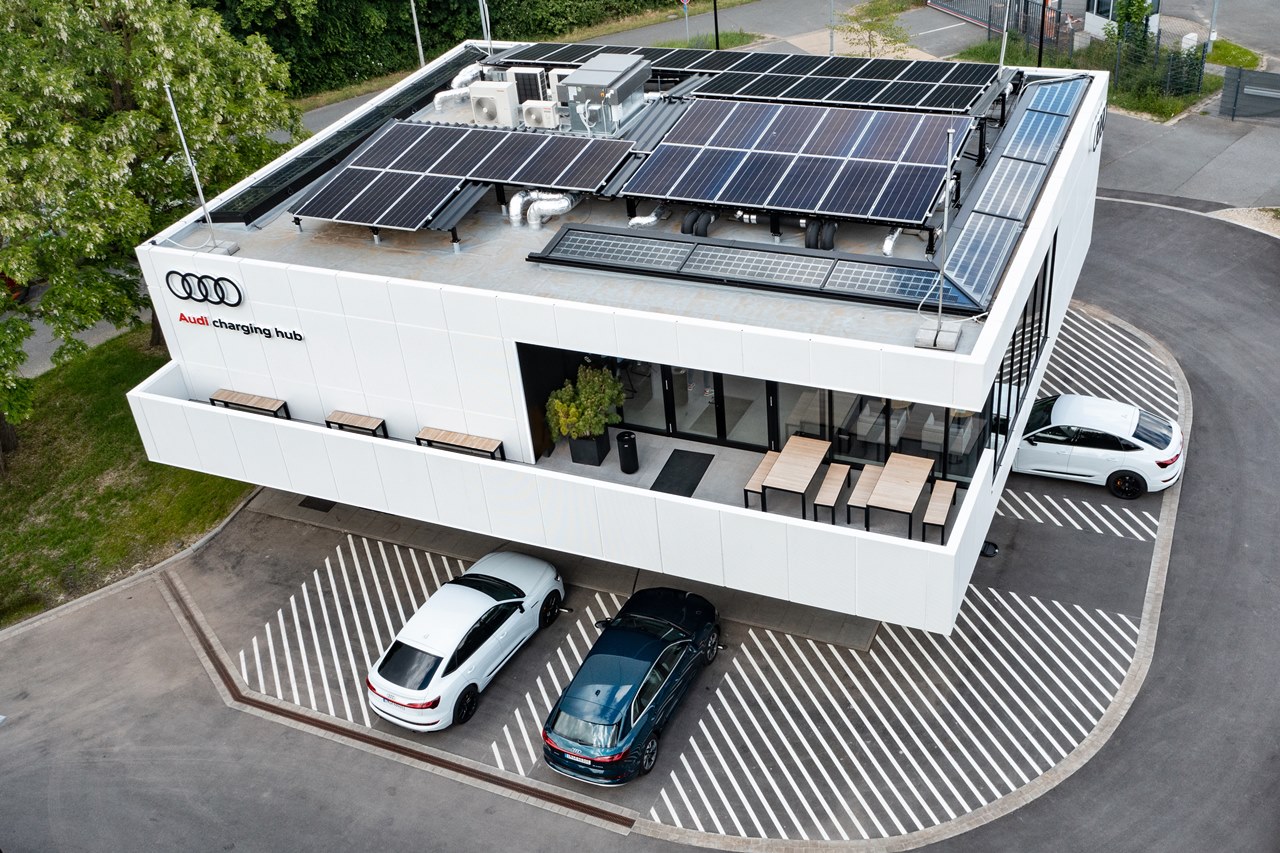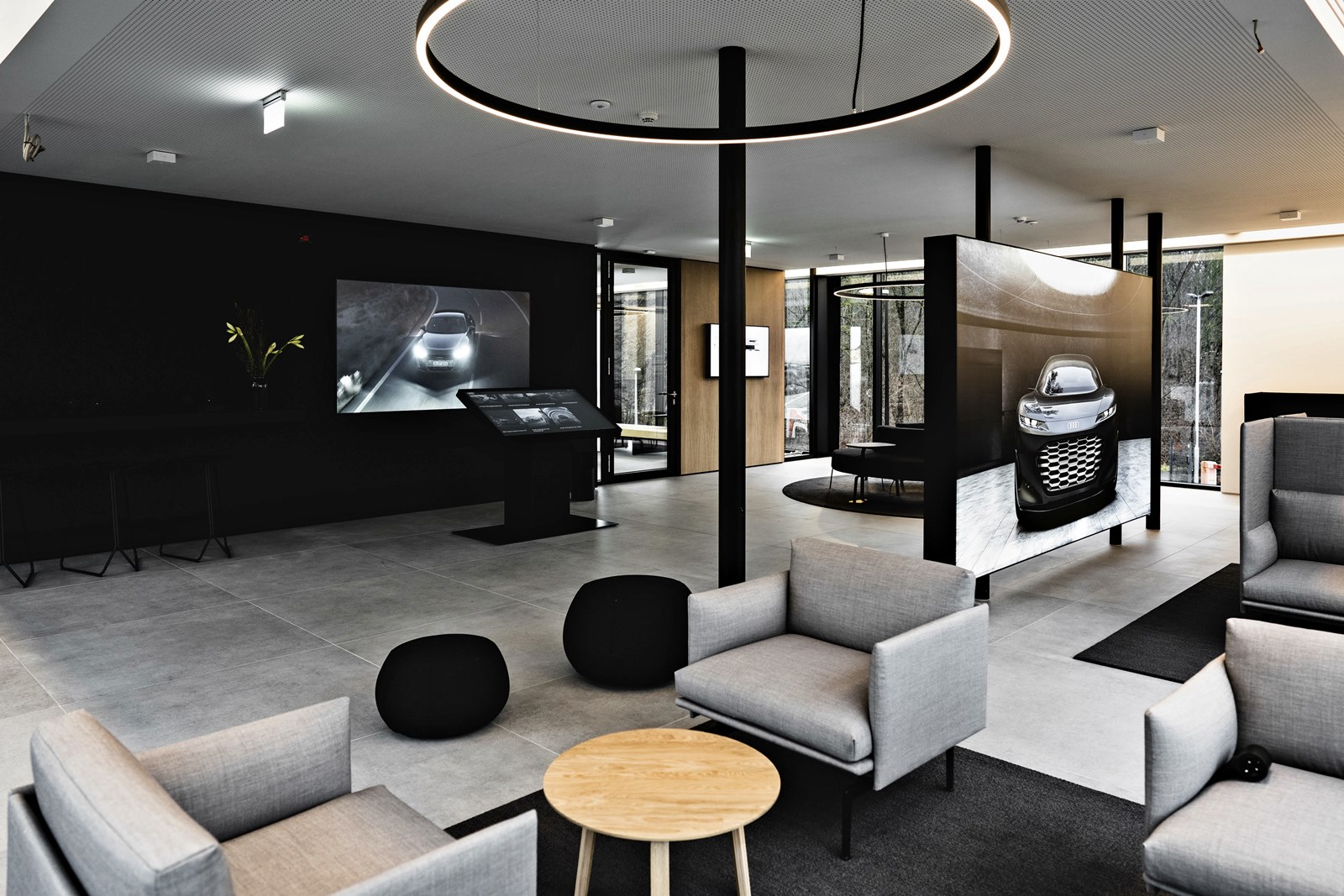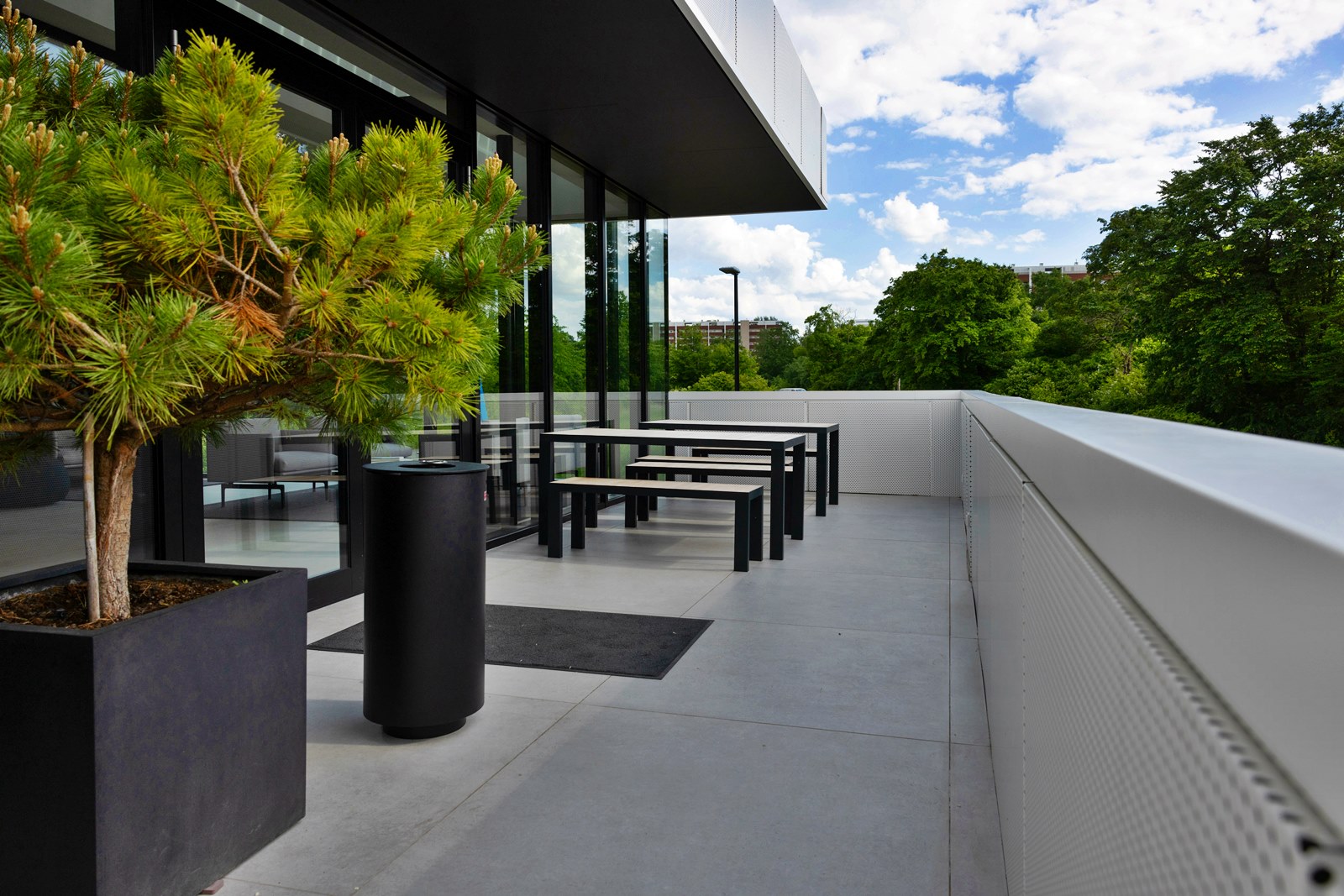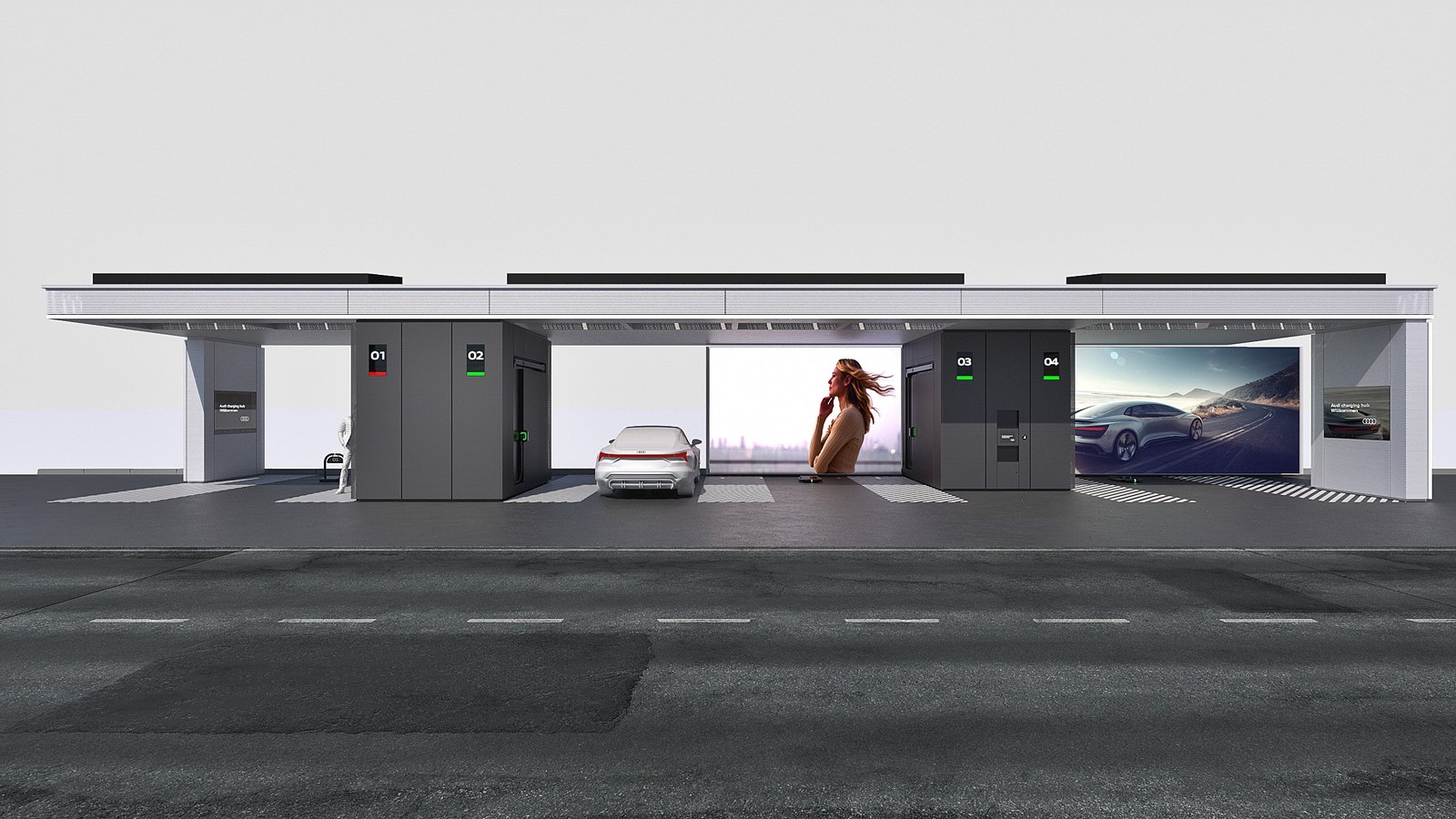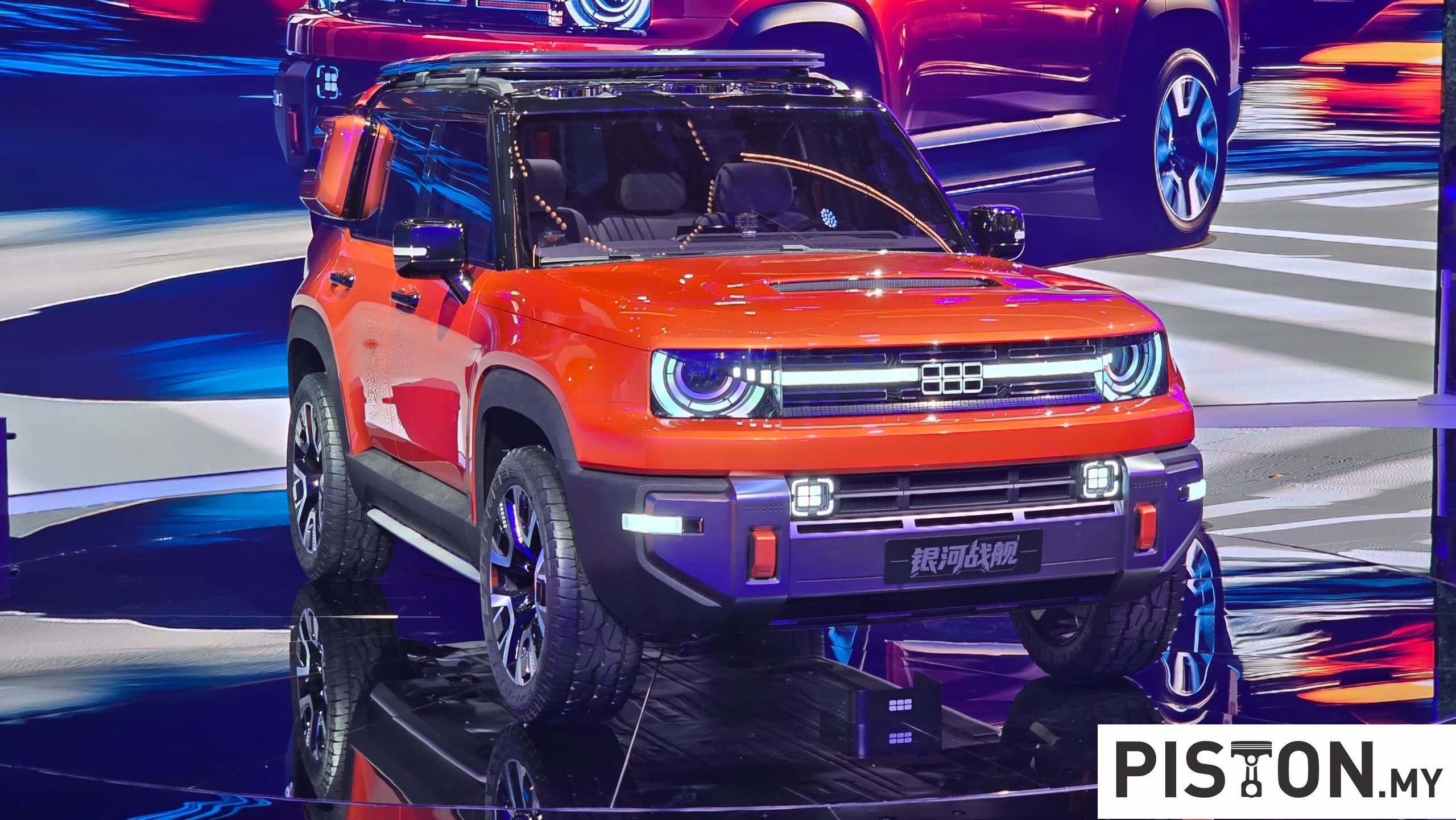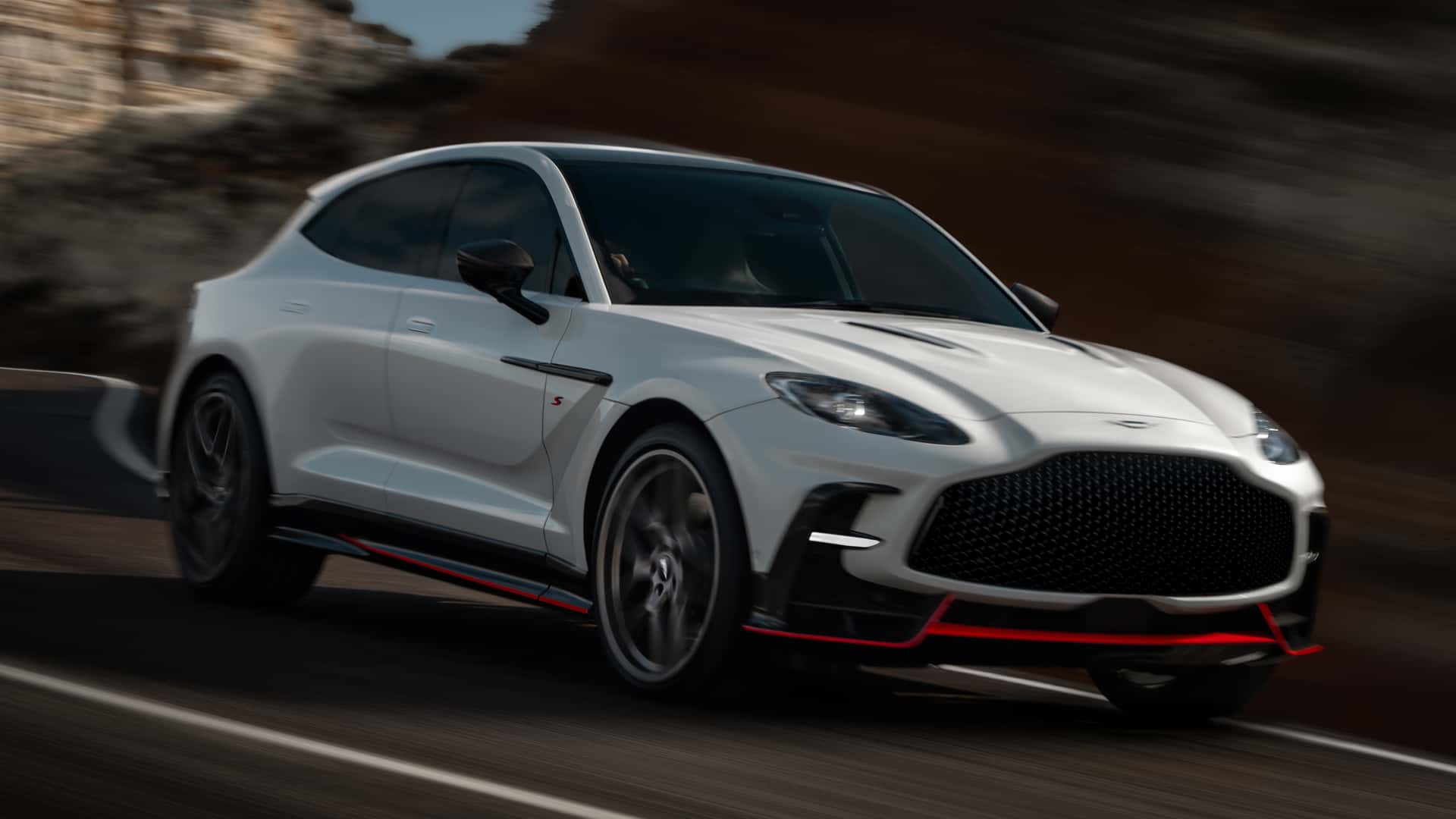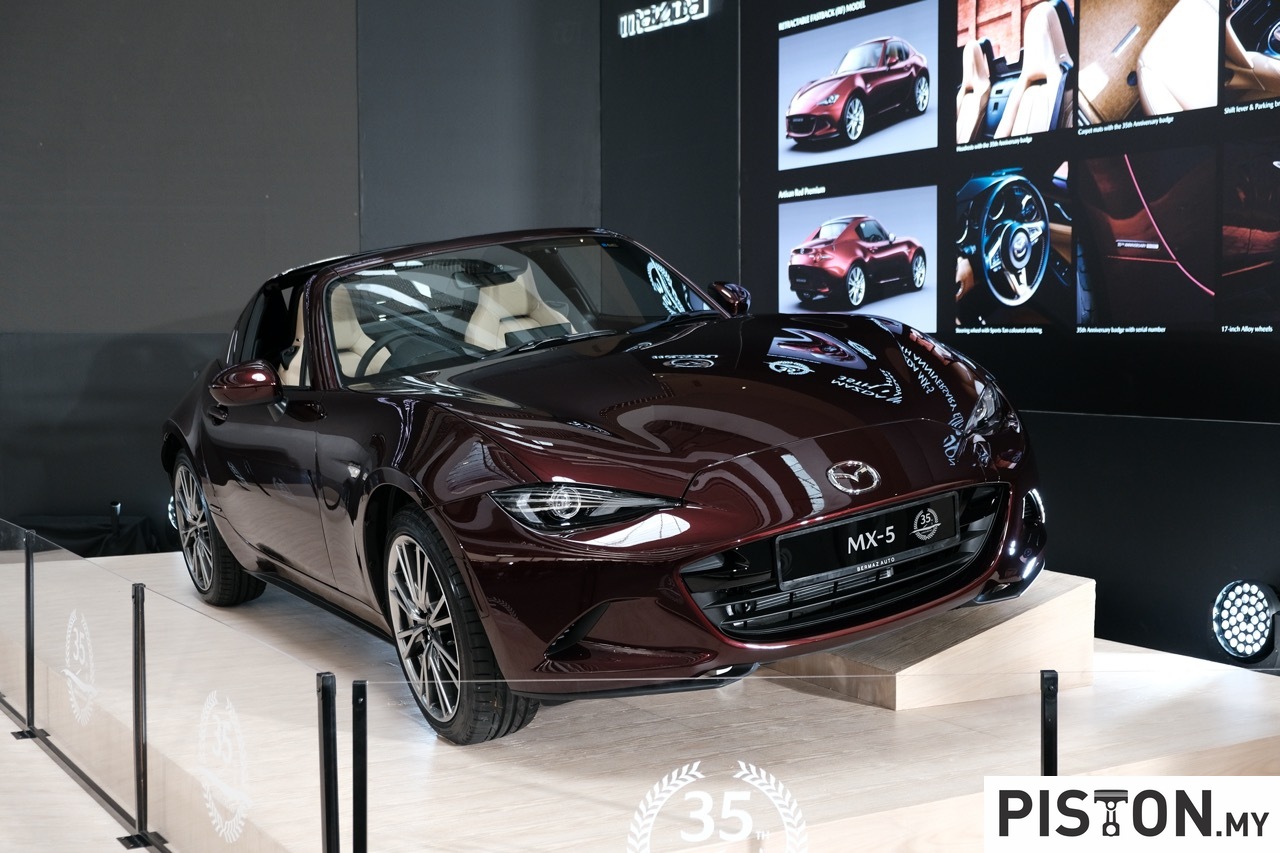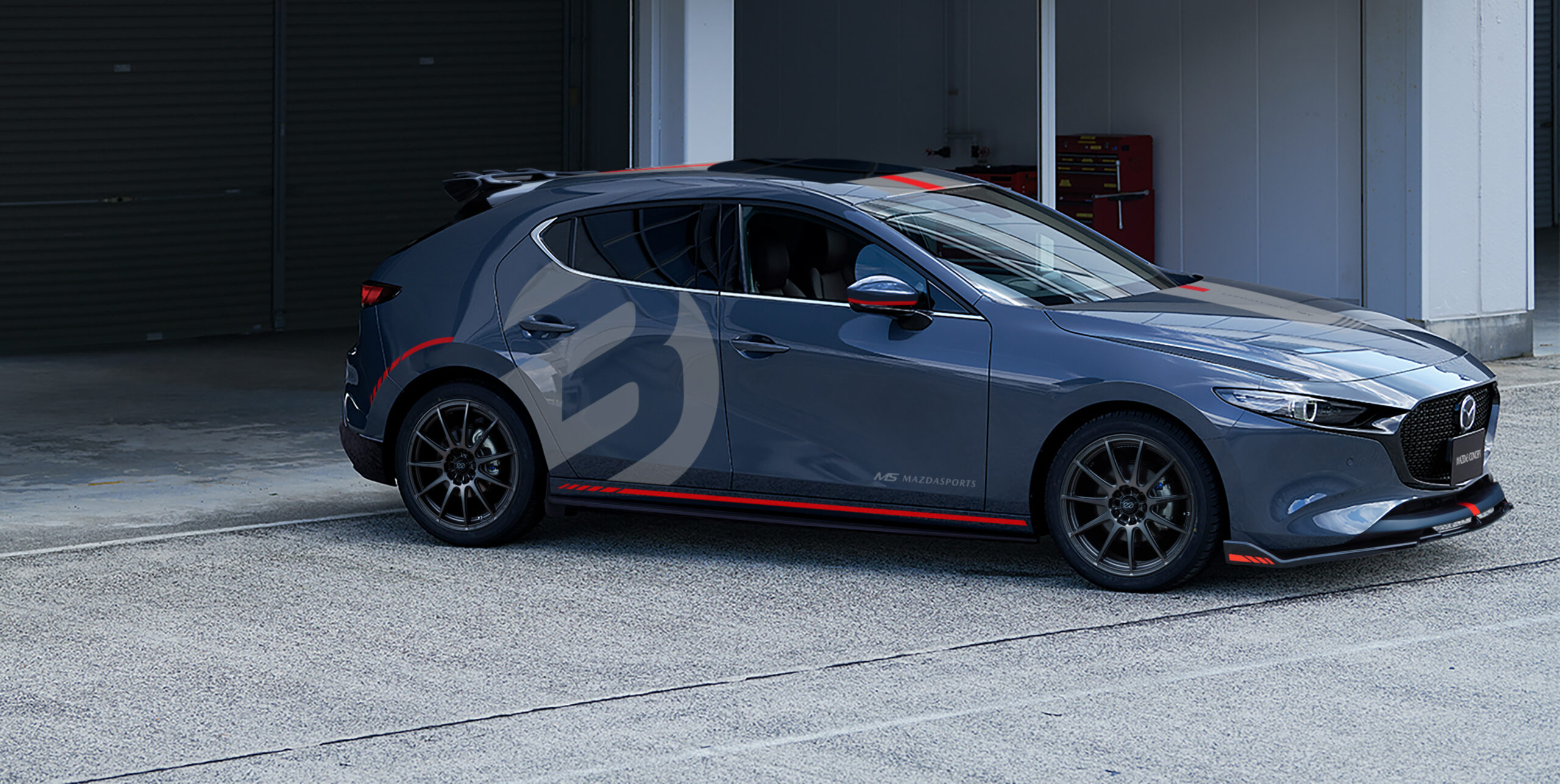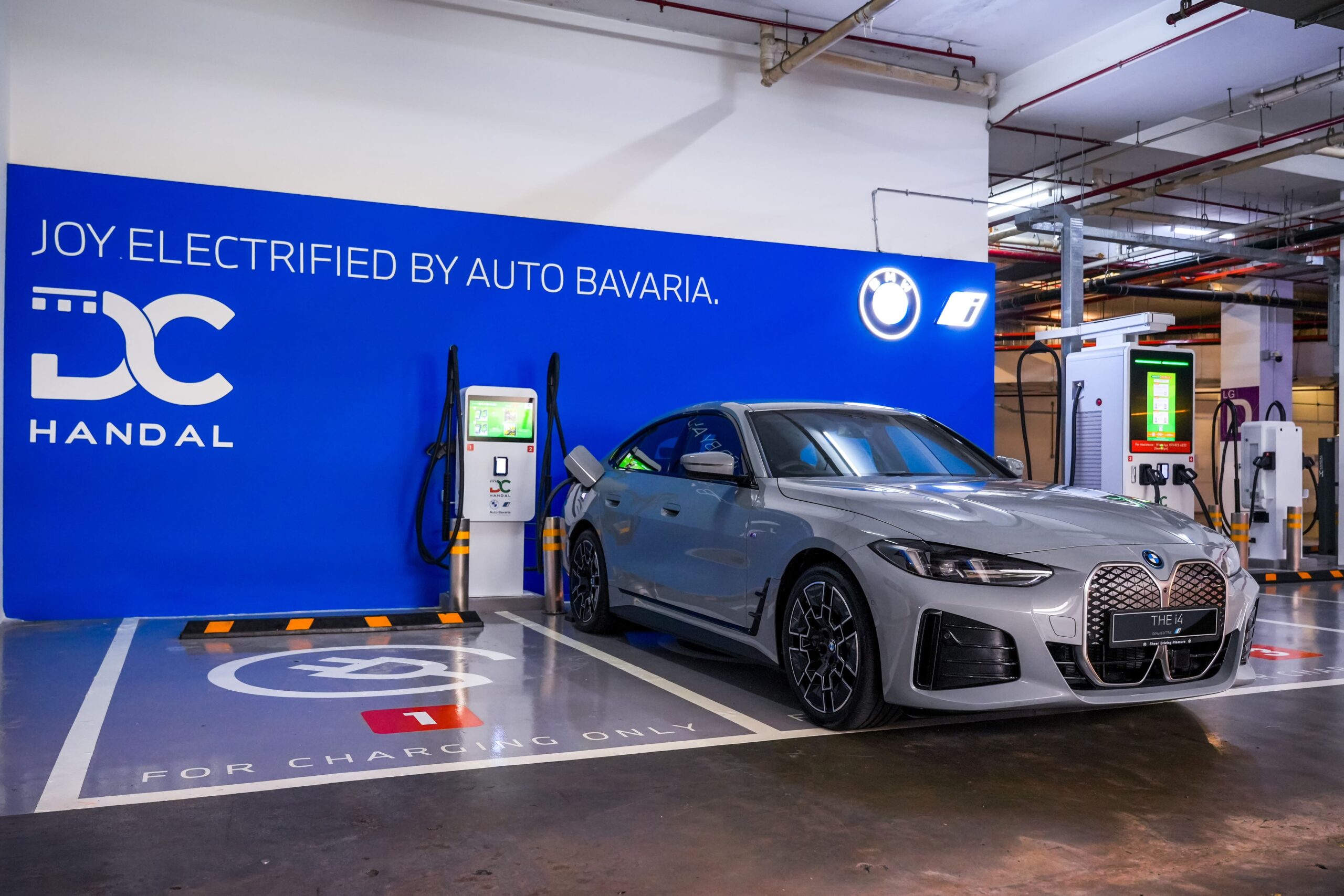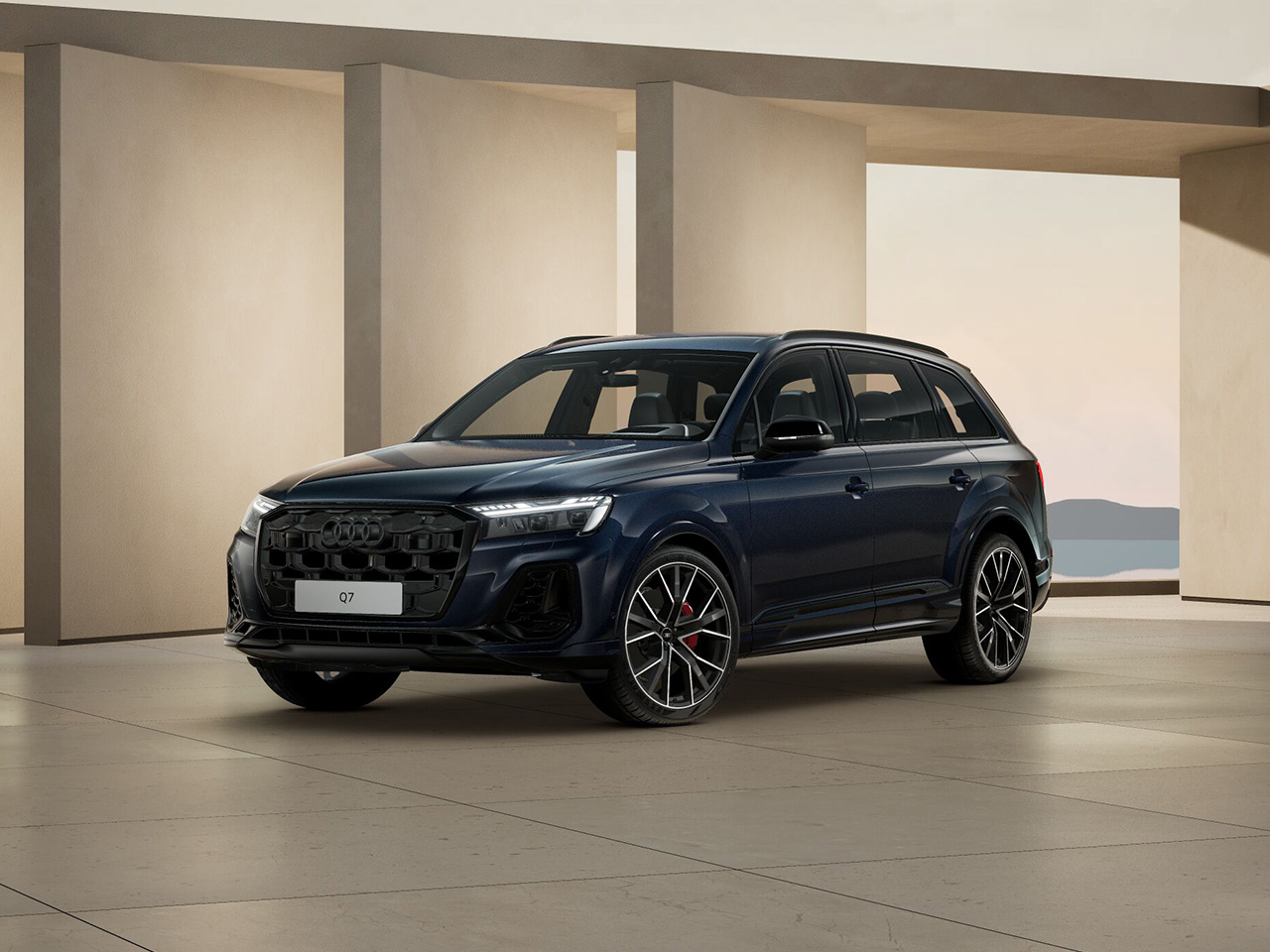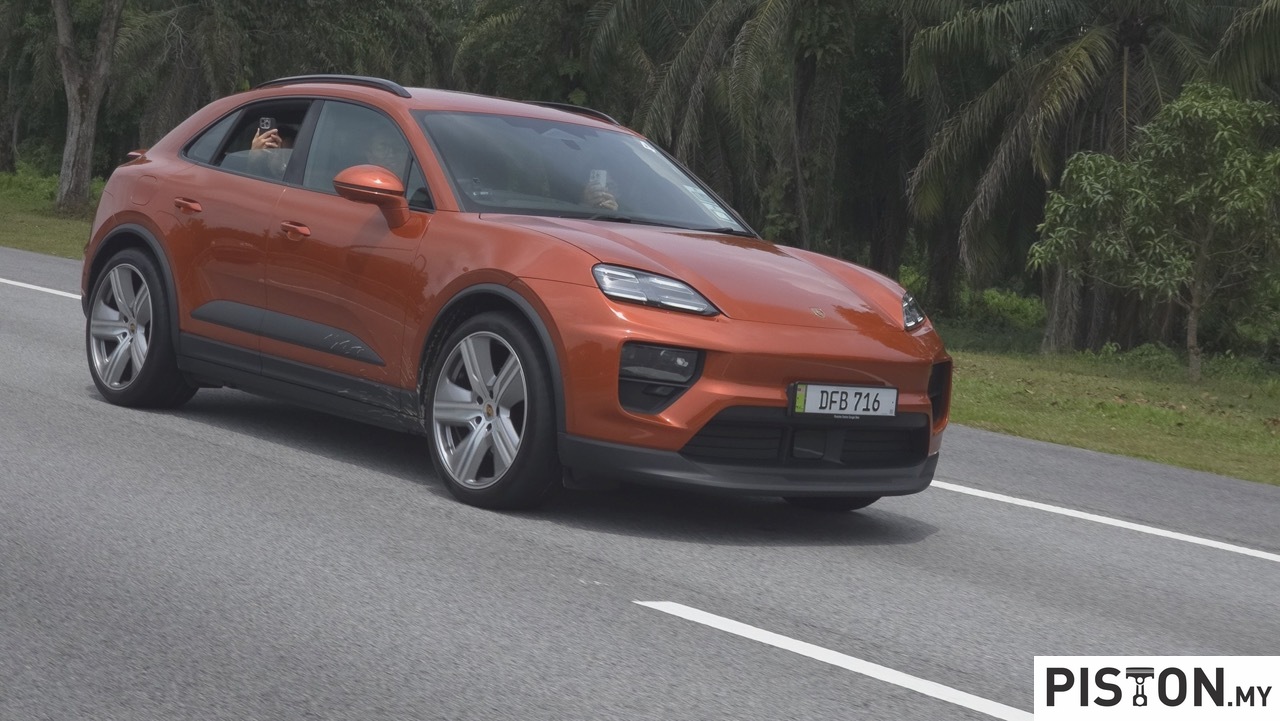The auto industry is rapidly ‘electrifying’ its products as part of its efforts to address climate change. While it has been producing and selling more and more electric vehicles (EVs), the network of recharging stations has not grown as quickly in some countries. In Malaysia, for example, the number of recharging stations can still be said to be limited and far apart.
Premium Charging Hub concept
In order to support their customers’ needs, some carmakers have worked with other companies to build up the networks. One approach that has proven to be successful is in Germany where Audi introduced a pilot charging hub last December. The concept, said to be a first in the world, is aimed at providing EV owners a recharging facility if they don’t have any charging opportunities at home. That’s a situation that is evident in urban areas with multi-storey housing and no place for installation of wallboxes.
“We want to use it to test flexible and premium-oriented quick-charging infrastructure in urban space,” says Ralph Hollmig, Audi’s charging hub project manager. “We’re going where our customers don’t necessarily wake up in the morning with a fully charged electric car and, at the same time, thinking about increasing charging demand in the future.”
Self-sustaining power supply
Cubes are the foundation of the Audi charging hub. The flexible container cubes can be assembled and disassembled again in existing areas in a few days. The cubes provide two fast-charging stations for each unit and can be combined in various constellations. Used and processed lithium-ion batteries packs function as energy storage systems. These are known as ‘second-life’ batteries taken from dismantled development vehicles previously used by the carmaker.
The approach reduces costs and resources, and makes complex infrastructure with high-voltage power lines and expensive transformers unnecessary. This means that there are also less procedures that would need to be obtained from authorities for laying cables to draw electricity from the power grid.
This system brings sustainable quick-charging infrastructure where the electricity grid is not enough. Up to six EVs can charge at one time at high speed. With a green power contract in place, the Audi charging hub only uses energy from sustainable resources, while solar panels on the roof provide up to 30 kW of additional green energy.
Positive feedback to pilot hub
The first such charging hub was installed in Nuremberg and feedback after 6 months has been overwhelmingly positive, according to Audi. It is evident that EV owners like the idea enough that repeat visitors accounted for some 60% of charging sessions.
Additionally, there is a lounge integrated in the facility with a terrace above the charging cubes. The comfortable lounge has catering as well. Vehicle owners can work and relax while waiting for their vehicles to be recharged. The status of the recharging can be followed on a large screen in the lounge. Frequent use was also made of additional services such as the exchange station for micromobility batteries and a grocery delivery service.
More charging hubs to be set up
Based on the insights gained in Nuremberg and the positive customer feedback, Audi is opening another version of the modular Audi charging hub system in Zurich in the second half of this year. This will have 4 roofed charging points at 2 power cubes The tighter space requirements tailored to suit urban locations are the perfect fit for Zurich’s banking and insurance district.
Additional advantages include short prep times for planning and implementation as well as a lack of any need for civil engineering work. An essential component of the adaptable, compact concept is the reworked swivel arm that ensures barrier-free charging of all the cars across the entire width of the individual charging points with up to 320 kW of power.
Two 55-inch screens draw customers’ attention to the broad services available at the hub. Besides food and fitness offerings as well as shopping, there are also e-bike sharing facilities nearby. More compact than the site in Nuremberg, the Audi charging hub in Zurich is also based on the same modular design that enables the construction of a variously sized charging hub with or without a lounge. “The system’s modular design lets us react flexibly to on-site conditions,” explained Hollmig.
After Zurich, Audi is planning additional charging hub sites in Berlin and Salzburg later in the year. These three sites are expected to help meet the increased charging demands in urban spaces starting in 2023. Additional sites are planned to open in other cities Germany in 2023 and mid-2024.
Audi Charging Hub concept could be refuelling station of the future




